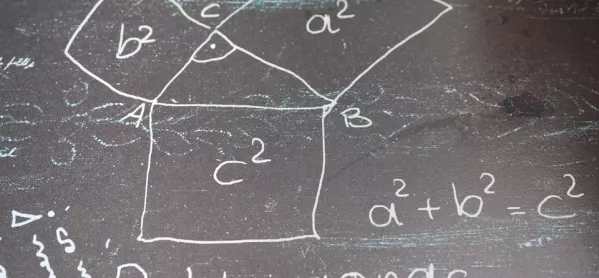A Sats-style maths exam for all university applicants could help give the British workforce the skills it needs to complete in a post-Brexit world, a report published today claims.
The document, A Global Britain: from local startups to international markets, also calls for all 16-19 year olds to study maths, “usually to a level above GCSE”, as in many international competitors.
Co-author Rachel Wolf, a former Downing Street policy advisor, said that while the report focused on the technology sector, its findings were “pretty applicable” to the wider economy.
The Coalition for a Digital Economy (Coadec) investigated the skills currently in greatest demand by tech startups, and found three major skills shortages, which were “most likely to be in high demand in the future”:
- Software development (interchangeable with software engineer)
- Advanced science, technology, engineering and mathematics skills (STEM)
- Basic skills in literacy and numeracy
They wrote: “The third area, basic skills, is not usually part of discussions on tech skills, but is utterly critical to the success of businesses - and to the development of more advanced skills.”
The report says that in the Czech Republic, Estonia, Finland, Japan, Korea, Russia, Sweden and Taiwan, 95-100 per cent of post-16 students study maths.
The figure was 21-50 per cent in Scotland, and 6-20 per cent in the rest of the UK.
The authors call for “a system where all 16-19 year-olds are expected to study mathematics, usually to a level above GCSE”.
They also call for basic levels of literacy and numeracy, at GCSE level, to be “a requirement for all further and higher education”.
The report said “every start up” they talked to highlighted the need for more STEM skills.
But while the authors acknowledged there were many qualifications and courses designed to increase the proportion of 19-year-olds doing maths and STEM subjects to a high level, they have “minimal impact on the traditional system” because they did not affect entrance into university or employment.
Ms Wolf told TES: “I don’t think anyone likes being told to study things they don’t enjoy, but there is a reason why we make it compulsory to go into education and training, and if you force them to do it, we should make it something that is particular and useful.
“If it’s really, really important to their future, our job is to secure their future. That’s why we make minors do something.”
The report said the government could enforce a Sats-style exam in maths for university applicants.
Ms Wolf said that while she expected some universities would reject the idea, it would not be a draconian step if they were allowed to state the score they sought, setting it as low as zero, but the results and choices should be published and used in league tables.
She added that the proposals, if accepted, would take eight to 10 years to implement, not least because of the need to recruit and train more maths teachers.
She said the first steps would be to recruit more maths teachers from abroad, improve incentives for people training in this country, and use technology to provide more of the teaching remotely.




